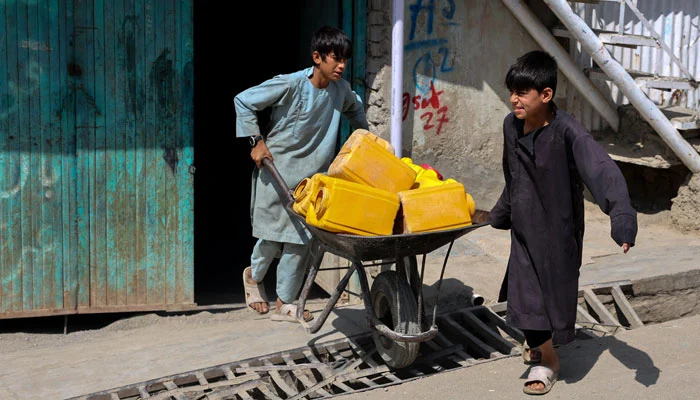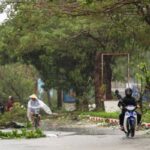Noorullah and his twin, Sanaullah, are eight years old, and instead of attending school, they spend their days pushing yellow jerrycans on a wheelbarrow through the dusty streets of Kabul. This situation is representative of Afghanistan’s worsening water shortage.
The 13-member family used to get their water from their own well, but since it dried up four years ago, they have been forced to wait in line at public taps or pool money for pricey water tankers.
Aid organizations say Kabul is among the most water-stressed cities in Asia, with shortages causing sickness, starvation, and school dropouts. Climate change is making droughts and unpredictable rainfall more frequent in Afghanistan.
The Afghanistan Analysts Network is a separate research organization with its headquarters in Kabul.







